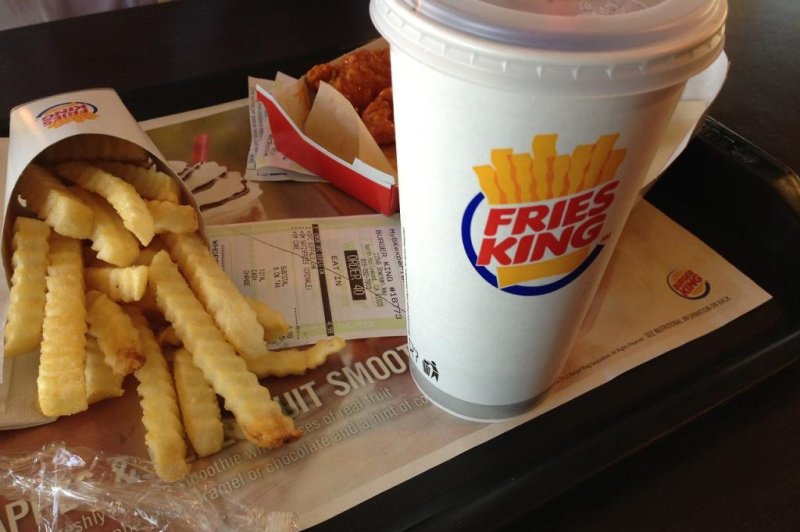Burger Kings' Satisfries were launched with much fanfare and promise of healthier eating at the restaurant chain but failed to attract customers. (Credit: Burger King)
MIAMI, Aug. 14 (UPI) -- Burger King said Wednesday it would phase out its low-calorie Satisfries from two-thirds of its restaurants because of low customer demand.
The fast food chain said over 100 million people had tried the lower-calorie fries, which were introduced less than year ago. But sales across its restaurants were too weak to continue offering the side order across the U.S.
When 7,500 franchise owners were given the option to continue offering Satisfries, only 2,500 restaurants decided to do so.
"Nearly 2,500 Burger King restaurants will continue to sell Satisfries as a permanent menu item across North America," Alex Macedo, president of Burger King's North America division, said in a statement. "The remaining restaurants will treat the product as a limited-time menu offering."
Burger King introduced the new fries last year after concerns that customers cut back ordering fries over health concerns. The Satisfries were made with a less-porous batter that absorbed less oil during the frying process. The fries were marketed as having 20 percent fewer calories and 25 percent less fat than Burger King's traditional fries.
The fries reportedly have 30 percent fewer calories and 40 percent less fat than McDonald's fries.
The announcement comes two days after Burger King announced it was bringing back Chicken Fries for a limited time. The item was removed from the menu in 2012, but the company said pressure from consumers on Facebook, Change.org and Tumblr convinced the company to bring back the popular item.










